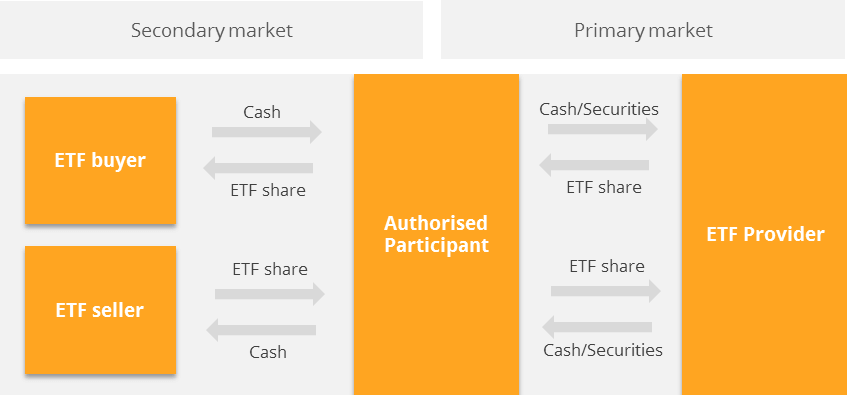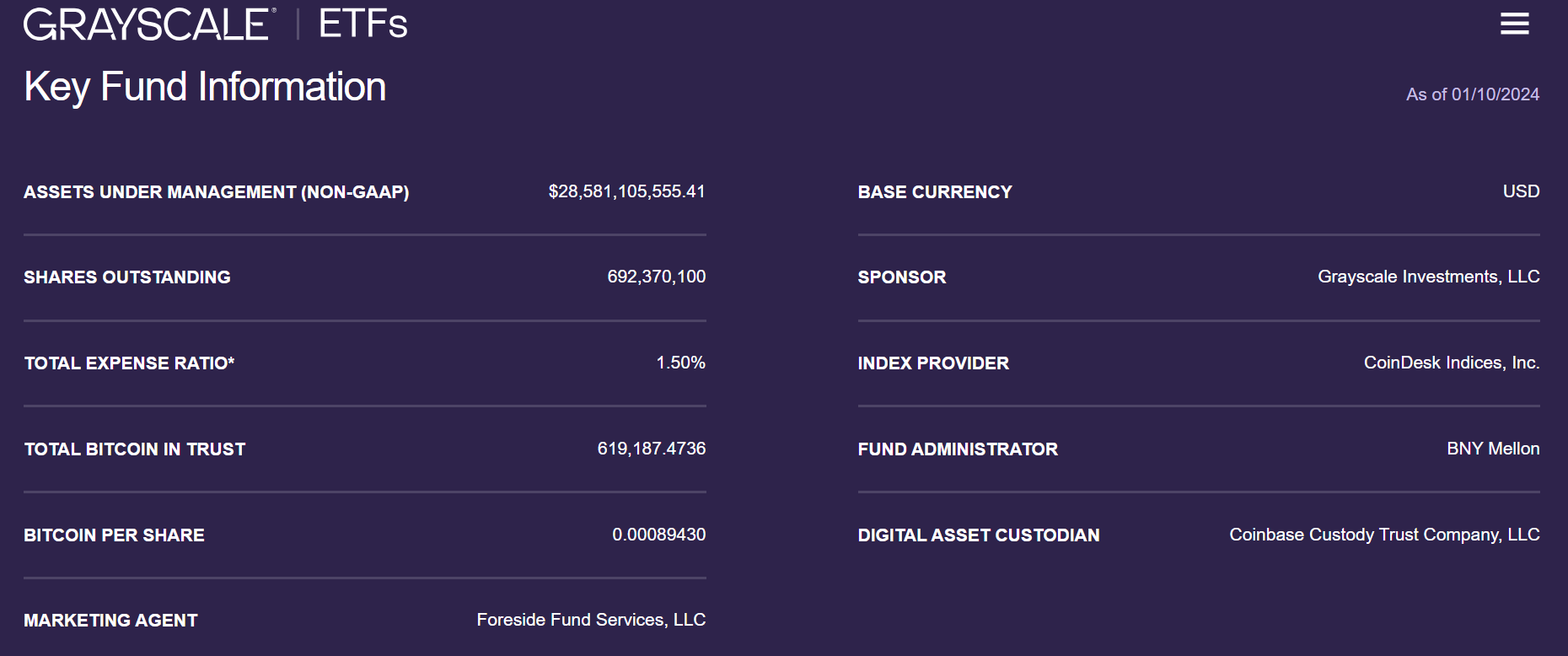How to trade BTC Spot ETF like stocks?
SEC approved Bitcoin spot ETF on January 10 urgently , and these 11 ETFs began trading on January 11.
Since 2013, several asset management companies have applied for Bitcoin ETFs, but the SEC rejected them on the grounds that they are easily manipulated by the market. However, Bitcoin ETFs were not just approved now. The SEC had already approved Bitcoin futures ETFs in 2021. $ProShares Bitcoin Strategy ETF(BITO)$ is the first Bitcoin futures ETF approved by the SEC, with a trading volume of about $1 billion on the first day.
The core difference between futures ETFs and spot ETFs lies in the underlying assets. However, futures ETFs have two issues:
Tracking errors and
higher costs due to the loss from long-term contract extension. Therefore, futures ETFs have not been very popular in the secondary market.
How do Bitcoin spot ETFs work?
Similar to the operation mode of other ETFs, Bitcoin ETF is also an asset collection, but this collection mainly consists of BTC as the asset. The trading of Bitcoin ETF is divided into two parts:
1. Trading in the primary market involves "creation" and "redemption." Large professional investors act as authorized participants (AP) (similar to underwriters), and they trade with the ETF provider through the creation and redemption mechanism. Of course, the AP can also be the same entity as the ETF issuer.
2. In the secondary market, trading occurs between investors like stocks.

It is worth mentioning that at the last moment before approval, the SEC proposed two new conditions:
1. The ETF applicant needs to use cash to create the ETF and eliminate all implied physical redemptions.
2. The "AP Agreement" column was added to the "ETF Cointucky Derby" snapshot, and the SEC hopes to confirm detailed information about authorized participants (underwriters). This is estimated to be for better regulation.
How will the demand & Supply for Bitcoin?
Similar to stocks, after being issued through an IPO and traded in the secondary market, the price is determined by the buying and selling demand of secondary market investors and does not affect the quantity of spot Bitcoin.
However, if an ETF provider needs to offer more shares, there needs to be more purchase demand from AP. This will involve expanding new shares, meaning that the provider needs to buy new spot Bitcoin to support the expanded issuance (similar to an increase in shares).
Different ETF providers hold different amounts of Bitcoin. Currently, the largest Bitcoin ETF $Grayscale Bitcoin Trust (BTC)(GBTC)$ holds 619,000 coins (established in 2013), while Cathy Wood's $ARK 21Shares Bitcoin ETF(ARKB)$ holds only 225 coins (obviously purchased in recent years).
What if there is a contango or backwardation?
Nornally it happens in futures.
But if there is price difference between NAV in secondary market and price of BTC spot, There would be arbetrageurs!
Strong buying power in the secondary market trading significantly exceeds the selling power will drive up the price of the ETF in the secondary market, surpassing the price of spot BTC.
At this point, there will be arbitrage trading opportunities: buying high-priced ETFs and selling BTC in the spot market. As for how much profit can be obtained, it all depends on the speed and skill of the arbitrage trader, which is their ability to seize opportunities.
Similarly, if the ETF is traded at a lower price than spot BTC, there will be arbitrage opportunities in the opposite direction.
$Bitwise Bitcoin ETF(BITB)$ $Fidelity Wise Origin Bitcoin Fund(FBTC)$ $Franklin Bitcoin ETF(EZBC)$ $Grayscale Bitcoin Trust (BTC)(GBTC)$ $Hashdex Bitcoin Futures ETF(DEFI)$ $Invesco Galaxy Bitcoin ETF(BTCO)$ $VanEck Bitcoin Trust(HODL)$ $Valkyrie Bitcoin Fund(BRRR)$ $WisdomTree Bitcoin Fund(BTCW)$ $iShares Bitcoin Trust(IBIT)$
Disclaimer: Investing carries risk. This is not financial advice. The above content should not be regarded as an offer, recommendation, or solicitation on acquiring or disposing of any financial products, any associated discussions, comments, or posts by author or other users should not be considered as such either. It is solely for general information purpose only, which does not consider your own investment objectives, financial situations or needs. TTM assumes no responsibility or warranty for the accuracy and completeness of the information, investors should do their own research and may seek professional advice before investing.



